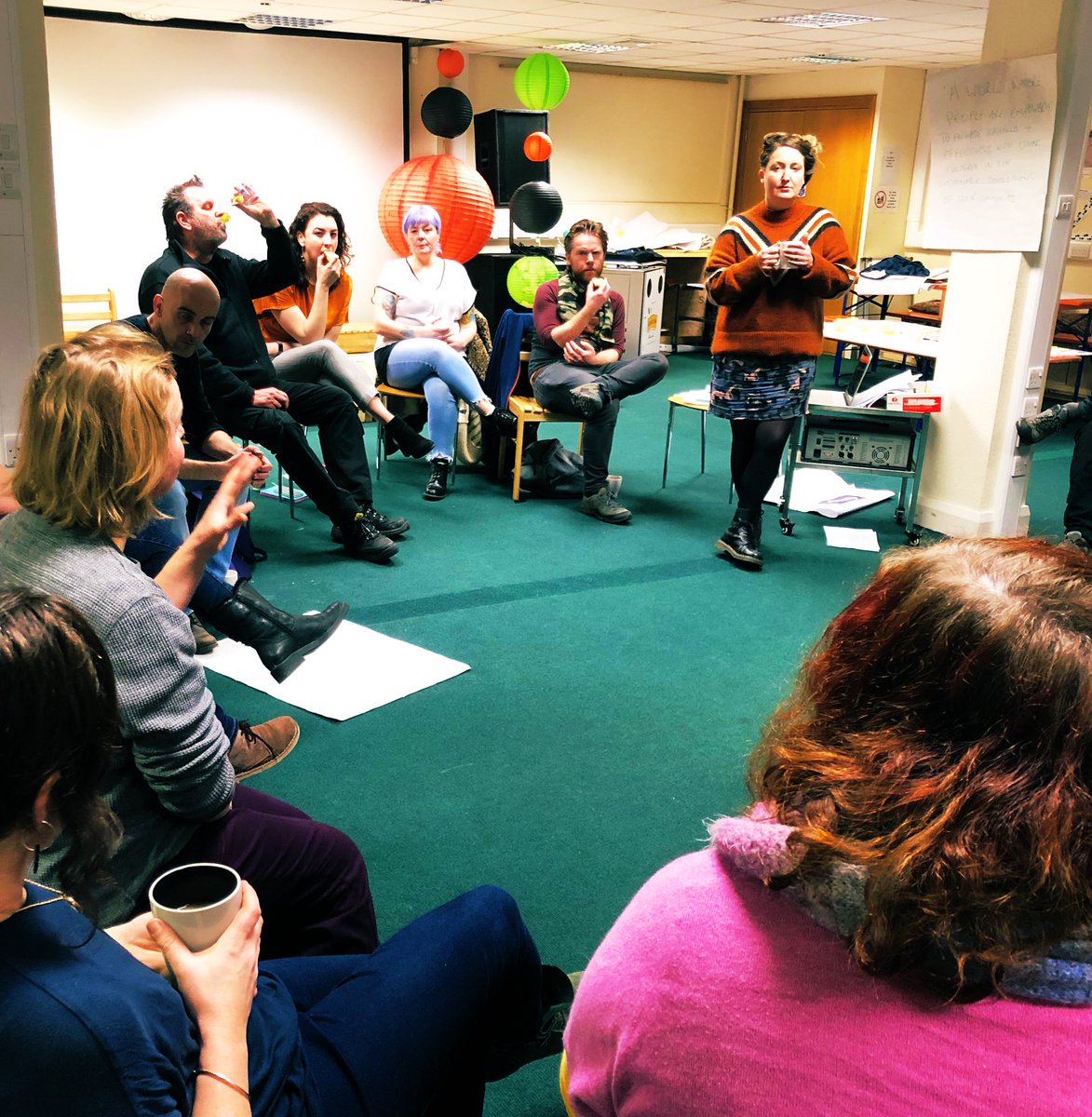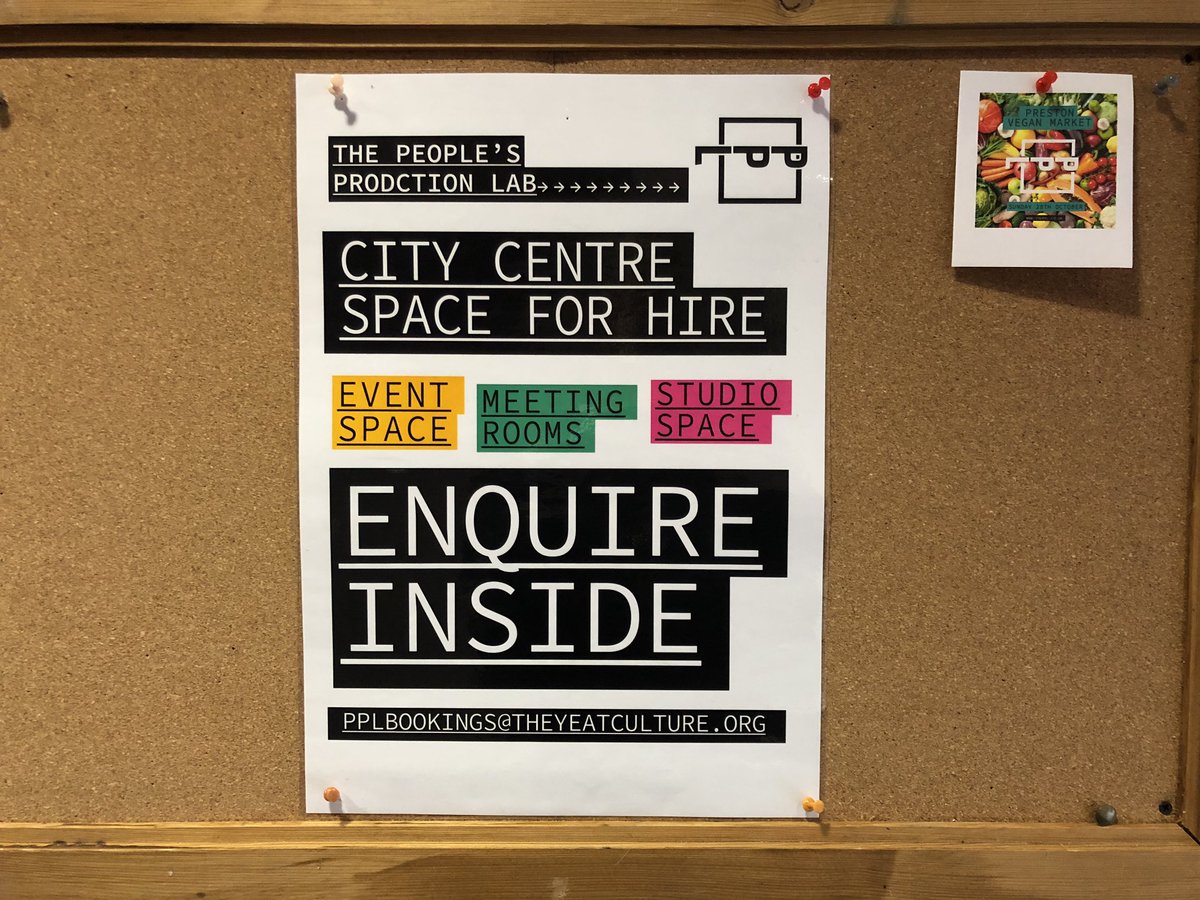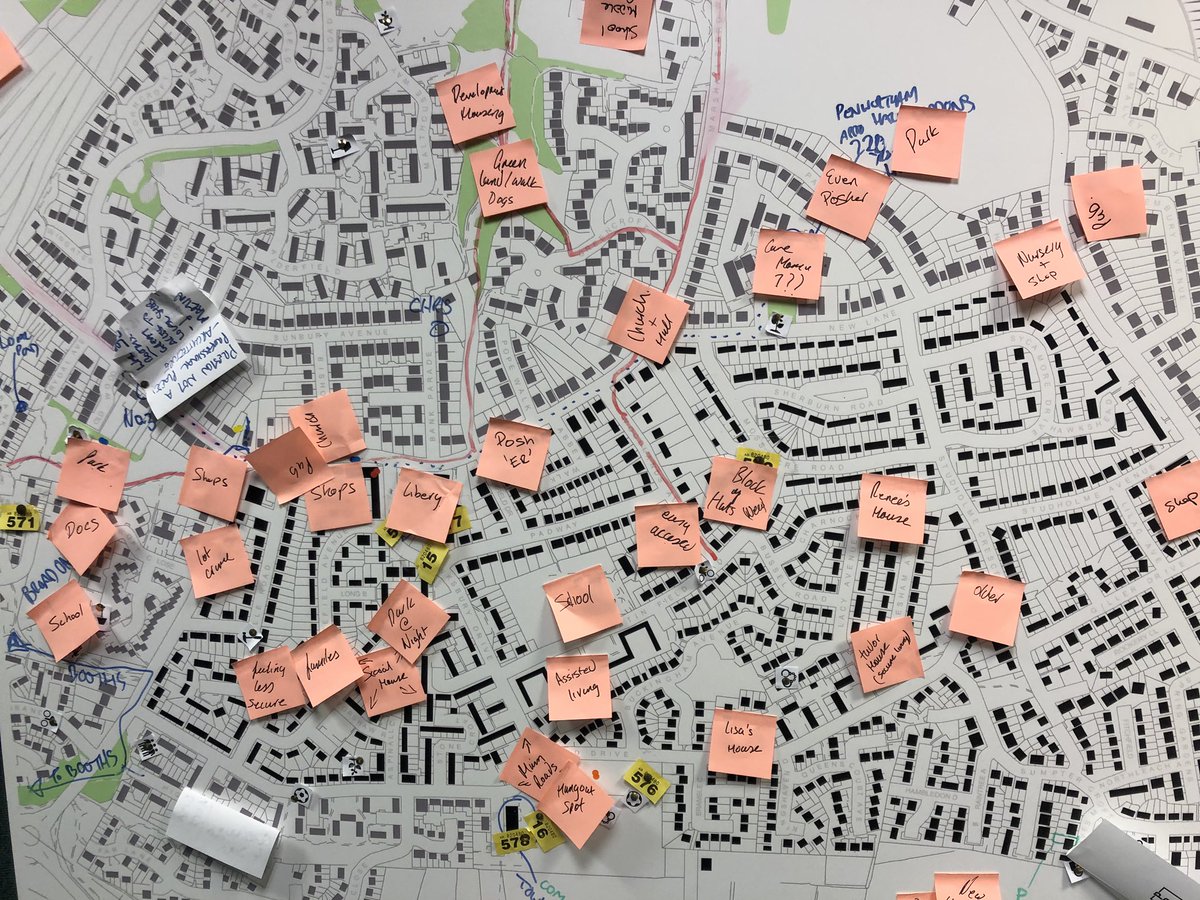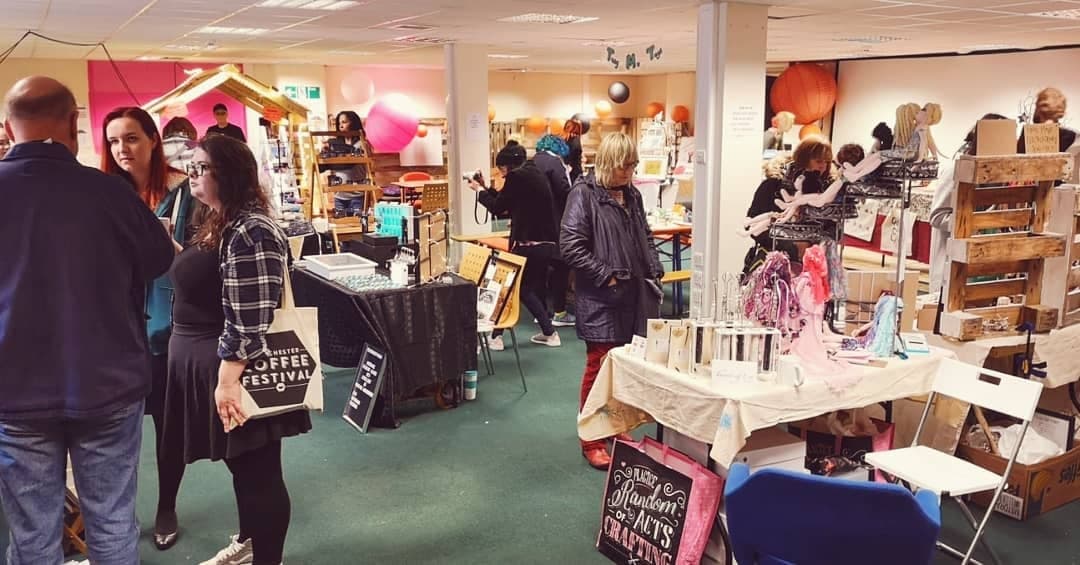Futures Forum: Preston: Post Brexit city - Co-operatives for an Age of Crisis > How the 'Preston Model' is boosting the local economy
Futures Forum: How local authorities can boost their economies
It won the award for social enterprise and, to quote a correspondent, "has transformed the city from one where dereliction was a word most used to describe the city - to entrepreneurship, growth and cooperatives as the norm now."
Shortlist announced for the UK Social Enterprise Awards 2017 - Co-operative News
And so we have the 'Preston Model':
What is the Preston Model | Preston City Council
Local democracy with attitude: the Preston model and how it can reduce inequality | British Politics and Policy at LSE
The Preston model: UK takes lessons in recovery from rust-belt Cleveland | Cities | The Guardian
Local democracy with attitude: the Preston model and how it can reduce inequality | British Politics and Policy at LSE
The Preston model: UK takes lessons in recovery from rust-belt Cleveland | Cities | The Guardian
The national media has been showing increasing interest of late:
A People’s Production Lab is reimagining Preston using art – and cooperatives
Preston has become a testing ground for a new way to run a local economy
Friday 8 March 2019
It’s Saturday morning in Preston and groups of people are hunched over whiteboards printed with maps of their neighbourhoods, covering them with Post-it notes.
“Green land for dog walks,” one reads. A street is marked “dark @ night” and another “hangout spot”. The groups are identifying what’s already available in neighbourhoods and what is desirable. It is part of the social action lab, a project with the British Council and the University of Central Lancashire to encourage Preston residents to become more active within their communities by offering them seed funding to develop projects.
The social action lab, which brings together artists, community activists and residents, is exactly the kind of thing Ruth Heritage hoped to support in Preston when she opened the People’s Production Lab in November 2017. The next step is to turn the many businesses and artists working within the Lab into a cooperative, owned and run by the people who work there, to make it sustainable.
Read more
The design secrets of the UK’s biggest cooperative
Could co-operative shops be the answer to expensive organic foods?
These platform co-operatives are creating a worker-owned economy
Preston has become a testing ground for a new way to run a local economy. The “Preston model” is rooted in the development of cooperatives, or businesses owned by workers, rather than shareholders in remote locations looking to extract value with stocks and dividends.
Cooperative startups have been shown to be more resilient during times of economic stress. While 44 per cent of new businesses survive their early years, 80 per cent of cooperatives go on to thrive, according to a 2018 report on the cooperative economy by Cooperatives UK.
Preston Council has just announced up to £1m in funding to support the development of cooperatives in the area. The funding will come from Preston City Council, the University of Central Lancashire and the Open Society Foundations, which was started by hedge fund billionaire George Soros. It will create 10 new cooperatives, owned and run by workers in Preston, building on the work of community businesses with ambitions to become cooperatives, like the People’s Production Lab and others.
“We want to provide equitable employment for graduates in the first instance,” says Mark Porter, a senior lecturer in web design at the University of Central Lancashire who is starting a cooperative called Preston Digital Foundation.
Mr Porter believes working at the People’s Production Lab will provide the basis for cooperation between cooperatives, one of the seven basic principles of working in this way. “Our next steps are to complete the registration process to get the coop up and running in time for summer and the next cohort of graduates and enable us to start generating revenue.”
Heritage started producing and commissioning arts and culture in Preston a decade ago under the name They Eat Culture. She began to imagine a fully-equipped creative space for the people of Preston, where digital businesses and artists could share resources and work together. In 2017, Michael Conlon, the manager of a local construction firm, suggested Heritage take on the multi-storey building at 55 Guildhall Street in the town centre. The building, previously used as offices by Lancashire County Council, had been empty since the departure of a faith school.
Within a year, Heritage and They Eat Culture have transformed the commercial building into creative spaces. Peering through the windows, I see white walls of former corporate spaces filled with equipment for a wood shop and tool library, a co-working space with desks and chairs donated by a local solicitor, a hack space with 3D printers and a sound studio with a green screen for video work. Art hangs from a washing line from the ceiling of one of the offices – now a screen printing studio. In the hallway, Heritage gets inside a makeshift photo-booth that went on tour with accompanying interview cards saying “talk to me about crime” and “talk to me about loneliness”.
Mr Porter believes working at the People’s Production Lab will provide the basis for cooperation between cooperatives, one of the seven basic principles of working in this way. “Our next steps are to complete the registration process to get the coop up and running in time for summer and the next cohort of graduates and enable us to start generating revenue.”
Heritage started producing and commissioning arts and culture in Preston a decade ago under the name They Eat Culture. She began to imagine a fully-equipped creative space for the people of Preston, where digital businesses and artists could share resources and work together. In 2017, Michael Conlon, the manager of a local construction firm, suggested Heritage take on the multi-storey building at 55 Guildhall Street in the town centre. The building, previously used as offices by Lancashire County Council, had been empty since the departure of a faith school.
Within a year, Heritage and They Eat Culture have transformed the commercial building into creative spaces. Peering through the windows, I see white walls of former corporate spaces filled with equipment for a wood shop and tool library, a co-working space with desks and chairs donated by a local solicitor, a hack space with 3D printers and a sound studio with a green screen for video work. Art hangs from a washing line from the ceiling of one of the offices – now a screen printing studio. In the hallway, Heritage gets inside a makeshift photo-booth that went on tour with accompanying interview cards saying “talk to me about crime” and “talk to me about loneliness”.
How film clubs, empty flats and job clubs can be part of community-led development in Lancashire with @ppl_preston @theyeatculture @ribbletonia #socialaction
“There are artists studios and shared spaces in Preston, but we’re trying to evolve a way of creating shared facilities that people can use rather than individual spaces,” Heritage says.
Anthony King runs a startup screen printing studio called Priestown Press from the People’s Production Lab. “I was out of work for quite a while after some surgery,” King says. “My wife suggested I get back into art. The Lab has allowed us to expand and have the space to be artists. It’s subsidised, so it’s beneficial for artists who are struggling. There aren’t that many in Preston.”
Priestown Press prints garments for street artists in Preston and London. Through the social action lab, King has been working on turning the studio into a community resource and a place for art therapy.
“It’s evolving into a social enterprise,” King says. “Especially for mental health, art can be very therapeutic. Suicide is on the rise among men and younger people, so if we can do projects that get kids doing things, rather than keeping themselves to themselves, then it can only help.”
Thank you to everyone who came along to the PPL'S Print Fair on Saturday. We had a great time and are already looking forward to our Christmas Market in partnership with @etsy_lancashire on December 8th 

Tom Stables is the chair of Digital Lancashire, a non-profit organisation that supports the digital economy in Lancashire. Stables says the area is already home to multiple agencies, software houses and creative enterprises. Digital Lancashire has worked with accountants and TV companies, helping them develop their digital clientele and acquire funding to expand.
Stables is considering basing Digital Lancashire within the People’s Production Lab where it can nurture partnerships with other businesses. “Having the People’s Production Lab on our doorstep is terrific,” he says. “As well as being a place that our board meet, a number of our members have the space to grow and thrive.”
Heritage talks breathlessly of plans for live storytelling projects, comedy programmes developing new talent, a community culture guide and a vegan pop-up experience. “I want there to be a lot of action on the ground,” she says. “Preston has been held back by being off the beaten track and by not having relationships with central government but the tide is turning. The time is now.”
A People’s Production Lab is reimagining Preston using art – and cooperatives | The Independent
And from the Guardian last week - although clumsy political labels don't necessarily help the debate:
And from the Guardian last week - although clumsy political labels don't necessarily help the debate:
In an era of brutal cuts, one ordinary place has the imagination to fight back
These are bleak times for progressives, but in Preston a socialist Dragons’ Den is proving to be inspirational
Aditya Chakrabortty
Wed 6 Mar 2019
Wed 6 Mar 2019
Last modified on Tue 12 Mar 2019
The story of local government today can be summed up in one word: cuts. Brutal, life-changing, future-cancelling cuts. As many as 1,000 children’s centres have been closed by English councils since David Cameron took office in 2010. Almost 130 libraries closed across Britain last year alone. That’s people with disabilities trapped in their homes, grandparents denied adequate care and lifeline bus services scrapped.
This is news that rarely makes the news. It is announced through notices tied around lamp-posts, rather than in the national newspapers. When Cameron and George Osborne designed their historic spending cuts to fall most heavily on local government, this was the outcome they wanted: private tragedies delivered through tens of thousands of brown envelopes plopping on to doormats across the land, rather than one glaring public outrage. Yet stack them all together and you can make two big bets about this country’s future.
First, our councils will emerge from this decade unrecognisable from how they entered it. They will be shrunken in size, in scale and in scope. Second, one of the great casualties of our decade of austerity is likely to be imagination – the sense that alternatives to this broken regime not only exist, but can be built by us. Of those predictions, it is too late to avert the first. Yet the second, I believe, can still be fought off. And for those desperate to preserve a spark of hope in a political system that feels so hopeless, let me suggest this: watch Preston.
Perhaps you already know something of the city. You may have read on these pages about its guerrilla localism, bringing tens of millions in public spending closer to home, so as to create more jobs and prosperity. How it has been praised by Jeremy Corbyn and how all the fuss prompted none other than Boris Johnson, the great silverback himself, to take a swipe at last autumn’s Tory conference: “I’m sure they’re an estimable bunch but Preston council are not the locomotive of the UK economy.” A jab swiftly parried by a study showing it to be most improved city in the UK.
The first fruits of this hard graft are there to see. Right outside the town hall is the new and award-winning covered market, a £4m contract filled almost entirely by local firms employing workers on the real living wage – public money that would otherwise in all likelihood have trickled down from Lancashire to firms headquartered in London and the south-east before no doubt winging their way offshore.
That’s the story so far, and for most councils it would amount to a good ending. Conference speeches, column inches, feet up. Not in Preston, as I discovered on a return visit last week. Instead, it is embarking on an even more radical adventure. First, we can exclusively reveal that the council is today launching a programme to incubate worker-owned cooperative businesses.
Think of it as a socialist Dragons’ Den. Using cash largely provided by George Soros’s Open Society Foundations, the city will fund and provide rent-free premises to 10 new firms owned and run by their workers. The scheme, worth up to £1m in cash and kind (compare that with the council’s annual budget of about £20m), will be run independently; and after their kickstart, the co-ops will be required to stand on their own two feet. Although given advice and expected to work together, none of the new enterprises will be told what to do.
The story of local government today can be summed up in one word: cuts. Brutal, life-changing, future-cancelling cuts. As many as 1,000 children’s centres have been closed by English councils since David Cameron took office in 2010. Almost 130 libraries closed across Britain last year alone. That’s people with disabilities trapped in their homes, grandparents denied adequate care and lifeline bus services scrapped.
This is news that rarely makes the news. It is announced through notices tied around lamp-posts, rather than in the national newspapers. When Cameron and George Osborne designed their historic spending cuts to fall most heavily on local government, this was the outcome they wanted: private tragedies delivered through tens of thousands of brown envelopes plopping on to doormats across the land, rather than one glaring public outrage. Yet stack them all together and you can make two big bets about this country’s future.
First, our councils will emerge from this decade unrecognisable from how they entered it. They will be shrunken in size, in scale and in scope. Second, one of the great casualties of our decade of austerity is likely to be imagination – the sense that alternatives to this broken regime not only exist, but can be built by us. Of those predictions, it is too late to avert the first. Yet the second, I believe, can still be fought off. And for those desperate to preserve a spark of hope in a political system that feels so hopeless, let me suggest this: watch Preston.
Perhaps you already know something of the city. You may have read on these pages about its guerrilla localism, bringing tens of millions in public spending closer to home, so as to create more jobs and prosperity. How it has been praised by Jeremy Corbyn and how all the fuss prompted none other than Boris Johnson, the great silverback himself, to take a swipe at last autumn’s Tory conference: “I’m sure they’re an estimable bunch but Preston council are not the locomotive of the UK economy.” A jab swiftly parried by a study showing it to be most improved city in the UK.
The first fruits of this hard graft are there to see. Right outside the town hall is the new and award-winning covered market, a £4m contract filled almost entirely by local firms employing workers on the real living wage – public money that would otherwise in all likelihood have trickled down from Lancashire to firms headquartered in London and the south-east before no doubt winging their way offshore.
That’s the story so far, and for most councils it would amount to a good ending. Conference speeches, column inches, feet up. Not in Preston, as I discovered on a return visit last week. Instead, it is embarking on an even more radical adventure. First, we can exclusively reveal that the council is today launching a programme to incubate worker-owned cooperative businesses.
Think of it as a socialist Dragons’ Den. Using cash largely provided by George Soros’s Open Society Foundations, the city will fund and provide rent-free premises to 10 new firms owned and run by their workers. The scheme, worth up to £1m in cash and kind (compare that with the council’s annual budget of about £20m), will be run independently; and after their kickstart, the co-ops will be required to stand on their own two feet. Although given advice and expected to work together, none of the new enterprises will be told what to do.
The inspiration comes from Mondragón, in Spain’s Basque Country. What is today the world’s biggest cooperative began in the 1950s, after the devastation of the civil war. Now employing almost 80,000 workers, it ranks among the largest companies in Spain, runs a vast chain of supermarkets, and exports around the world. The employees are the bosses, and no one earns more than six times what anyone else does(at British housebuilder Persimmon, by comparison, ex-CEO Jeff Fairburn got paid over 3,000 times his most junior staff. Yet every venture has paid its way. Those are the same values that Julian Manley, heading Preston’s cooperative scheme, wants inculcated among the 10 new businesses. Within a decade, he hopes Preston will be a mini-Mondragón – a city that gave birth to an entirely new economy.
By the time the first co-ops are up and running, Preston’s council leader, Matthew Brown, also plans to launch a new people’s bank for the north-west. Its branches will be on high streets from the Wirral to Cumbria, and it will lend about £500m, of which one-third will go to small businesses in the region. Again, it will be run as a co-op, and with values that run entirely counter to the banking system that crashed in 2008. Rather than giving bonuses, making multinational deals and screwing over punters, it will aim to be local, trustworthy and very boring.
In Brown’s wood-panelled office hangs a Sex Pistols poster, while facing him every day is a portrait of Tony Benn. Yet for all the firebrandery pinned up on his walls, the council leader himself says the most radical things as mildly as one might ask whether you take milk and sugar. What’s his ultimate goal? “It’s about building an alternative to capitalism – a capitalism that has failed this city and this country.”
And while the words are muttered in the direction of his shoes, there’s no doubting Brown’s ambition. Even as other councils are scrapping or selling their most prized services and buildings, a small and often-overlooked city is building bold new institutions.
There is nothing special about Preston. It is as battered as anywhere else in England. It is just as starved of cash. After a decade of cuts, admits the councillor in charge of finances, Martyn Rawlinson, an aged couple with rats in their house will be waiting weeks for the city’s pest control to come out. So why not devote every penny, every minute of municipal resources to preserving services, rather than to these experiments? “Because this is about building something different and better for ourselves,” he says.
I fully expect some of these ideas to crash and burn. Others need to be improved. Preston hosts an annual carnival, its taxi drivers can speak Urdu, and its shop signs are often in Polski. Yet its new-model economy is, so far, white and male. But as Rawlinson argues, more of the same policies will produce more of the same failure. That knowledge, and the desire to act on it, is spreading elsewhere. It’s why Hartlepool wants to take a leaf out of Preston’s book, as does Labour’s candidate for North of Tyne metro mayor, Jamie Driscoll. It’s why Bristol and the south west are also looking at people’s banks while the Welsh government has just started to fund the idea of a foundational economy focused on locals’ needs such as social care, good schools and broadband I have previously discussed.
These are bleak times for anyone who wants a more progressive politics in Britain. We are hostages to a rightwing project, Brexit, that has failed before it has even launched. Our government bursts with chancers and buffoons who are incapable of chartering a ferry service. Yet it remains a country with the imagination to try new things and the fight to make them work. As I leave Manley, I ask if he is serious about building a new economy in his hometown. The co-ops of Mondragón, I point out, benefit from tax breaks and an entirely different political culture.
“Yes, they never had Thatcher,” Manley agrees. “But they had General Franco, and they built something new among bombed-out ruins. If they did that, why can’t we? It’s tough – so what?”
• Aditya Chakrabortty is a Guardian columnist and senior economics commentator
In an era of brutal cuts, one ordinary place has the imagination to fight back | Aditya Chakrabortty | Opinion | The Guardian






7 comments:
Nice. I am really impressed with your writing talents and also with the layout on your weblog. Appreciate, Is this a paid subject matter or did you customize it yourself? Either way keep up the nice quality writing, it is rare to peer a nice weblog like this one nowadays. Thank you, check also event management and free registration software
SASVBA offers 15+ best online learning modules designed to meet industry standards. We have a very pleasant and supportive environment. We focus on providing the best online / face-to-face learning experience in order to provide students with the best services to enhance our students' education. We also have a placement unit for 100% placement support.
R Programming Training In Delhi
Data Analytics Training In Delhi
Mern Stack Training In Delhi
Artificial Intelligence Training In Delhi
See More: SASVBA
so happy to find good place to many here in the post, the writing is just great, thanks for the post.
business analytics course
Amazing blog post,
SEO Training In Hyderabad
Here is the Complete Guide on Content Pruning SEO that covers the meaning, benefits of Content Pruning in SEO rankings.
This is really very nice post you shared, i like the post, thanks for sharing..
data science training
Thanks for this intelligent post on data science. The statistics and data presented here are accurate, which is always a pleasure to read. This post definitely has something in it for data science newbies and experts, which, in itself is a difficult feat to achieve. I would strongly recommend this post to anybody who wants to know something about data science and its current trends.full stack developer course
Post a Comment